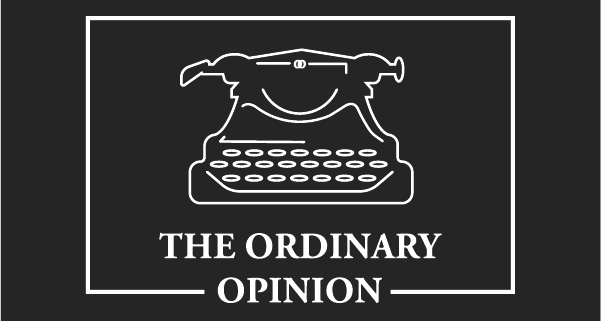Trump University was a scam.
The self-proclaimed artist of the deal has struck another one, this time with the Justice Department. <Considering the lives impacted and the volume of people taken advantage off>, I’d say our Tawny Tempest got off fairly lightly. I suppose being president helps with that.
From where I’m sitting it’s unclear what Donald Trump’s key redeeming qualities are. As the United States sorts through the debacle on Russia, and his administration “signs earth’s death warrant” , and bamboozles hapless coal country into believing there’s a comeback afoot, his most ardent supporters cling ardently to the belief that Donald Trump was a hugely successful businessman, so is well-placed to restore their economic hopes and dreams to the realm of possibility.
When I mention to the ones I know that he’s actually under-performed passive index funds over the active life of his business activity, or that the “Art of the Deal” was almost entirely ghost-written, or that he ran his business into the ground in an industry where the tagline is “the house always wins,” I get some variation of “he knows what he’s doing.” I’m told that he has lots of experience we could all benefit from, and that he has a lot to teach us all.
And you know what? I’m not sure I can argue with that. Trump University might have been a complete sham, but our Mandarin Monarch still has plenty of lessons for us, even while being an unfortunate. Here are a few things (no…seriously) I think we could all learn from Donald Trump, whether we care to admit it or not:
1: Speak your truth. Whatever you believe it to be, and no matter who speaks to the contrary
The thing is that a number of people will believe you:
- Those who love you too much to disagree
- Those too lazy to do the research.
- Your captive audience (assuming you have one)
When the FBI Director testified before the House Intelligence Committee that he had no evidence to substantiate Donald Trump’s wire-tapping allegations against the Obama Administration, Donald Trump’s administration tweeted out that the Director was in fact testifying on that very link. WHILE HE WAS SPEAKING.
Either they knew most people wouldn’t tune in to verify for themselves, and probably also knew their most dedicated followers wouldn’t check alternate news sources to hear a different take. The result? 74% of Republicans believe that Obama might have tapped Trump. It’s pretty impressive, when you think about it… the balls to do it, the weighted risk being taken, and the successful outcome secured.
With the expectation of that sort of success, it’s no wonder the Donald regularly updates us with things that he is or that he can do better than anyone else, some of which are below:
- That he is an amazing businessman, and knows more about business than anyone
- That he was the best option for black people in the 2016 election
- That he understands war, better than America’s generals, and no one is “bigger or better at the military”
- That he is a practicing Christian, who loves the Bible more than anyone
- That he builds the best walls
- That no one is better to people with disabilities
- That he respects and promotes women better than anyone
- That no one has ever had crowds – including at inauguration – than he did
You and I know those claims are arguably at best and pure imagination at the worst. But that isn’t the point of this piece. The point is that people – often without the benefit of a quick fact-check – believe it. And that was enough not only to win an election…but to maintain a core support base in the failure-ridden weeks since.
Quick personal story: After my first project as a consultant, my team manager expressed some doubt in my Excel/analytical skills. Understandably so…I’d never used the thing before in my life, and wet the bed a bit on my first few attempts.
Somehow, this got to my second project manager, who was instantly skeptical every time I threw out some numbers. He would double-check my work on the simplest of tasks. The whole thing made me completely nervous.
One day I introduced a mistake to a model I’d been working on. No one caught it. And then the client did, in the middle of a presentation with our senior partners. That day did not end well, and my manager made that single event the story of the whole project and of my profile.
On my next staffing opportunity, I managed to reach out to a team desperate for some cover. I get the feeling I was their last resort. When asked how my analytical skills were, I spoke my truth: that I was a computer science major, had worked on Wall Street, and was solid at analytics. “Great!” said the partner-in-charge. He didn’t argue, didn’t ask for a reference. He just put me on a plane to Boston. He introduced me to the manager with a “here’s the new guy. I heard he’s great with analytics. Put him on the model.”
Not one time in 6 months did anyone check my Excel. Any mistakes caught in team discussions were waved off as the sort that “could happen to anyone,” and probably the result of “working too hard.” With scrutiny off, room to breathe, and the benefit of the doubt, I really did become quite good. And now…well, I’m no banker or anything, but I’m certain my pricing models are better than yours…
Speak truth. Not necessarily “the” truth, but “your” truth. You might be president one day.
2: Surround yourself with friends, not enemies:
Of all the terrible professional advice I’ve heard over the years – and I’m offered plenty – one of the worst encourages keeping your friends close, but your enemies closer. I’m sorry, but that doesn’t make any sense. The more I watch my client CEOs and other leaders, the more I’m convinced that concept is just another over-romanticised-business-concept gone wrong. (Like “Burn the ships,” which in most circumstances is just daft ). Why not just keep your enemies close enough, but your friends closer still? That’s what The Donald does, and now he’s in the white house.
Donald Trump knows who his people are, and has surrounded himself with them in the face of all opposition and protest. His inner-circle consists of a cast of Disney villains like Steve Bannon and Stephen Miller, but pick past that scabbing and you’ll find the president’s daughter, son-in-law, and two of his sons. That’s at least one nuclear family member for every “outsider” like Reince Preibus and the Steves, and no charge of nepotism will dissuade him. And I think there’s something to it.
Jared Kushner is considered the most powerful voice in the President’s ear, and has been hastily assigned a wide-ranging brief that includes peace in the Middle-east and leading the “American Innovation” office. His daughter Ivanka is now his “assistant,” a vague position that leaves no doubt that she will be in constant proximity and contact.
When I hear about Stephen Miller and Steve Bannon, I never quite shake the feeling that they’re ultimately dispensable, should the need call for it. They’re close, but not Ivanka-close. Ivanka-close is front row of every debate, stand-in status at rallies, join me to meet the prime minister of Japan close.
CEOs tell you often that theirs is the loneliest job. They are surrounded by yes-men and opportunists who are either too self-interested or too afraid to challenge bad ideas or call out blind spots. Why introduce enemies to an already shi**y situation like that? No no…much better to call in your friends and family, and in greater numbers than your enemies, who need no invitation.
That’s what the Donald does; say what you want, but it seems to work for him.
3: Not every time owning up. Sometimes be quiet.
As a manager, I used to hate people not owning up to their mistakes. I consider it immature and unprofessional, the sure sign of a worker-bee who will never be a leader. All that said, a curious thing has happened over the years: as certain principles become societal ideals, I’ve seen people over-do it all slightly.
Managers have started taking the fall for poor work a subordinate produced. People are pointing out flaws in presentations that no one else caught. People are accepting unwarranted criticism. “Even if it’s out of nowhere, there’s still something to learn!” they say. I disagree. I see no nobility in allowing yourself to be associated with a mistake or a flaw that is not your cross to bear. Or is not a cross at all. Sticking your hand up for every error spotted isn’t bravery – it’s character suicide. Where is the value in “Hey I wouldn’t put Sam on my team…he makes a lot of mistakes. At least he owns up to them, though!”
Donald Trump would likely also disagree. Trump does not take any blame for his team’s issues and mistakes; he also doesn’t take the blame for his own mistakes or outright lies. To his detractors, it must be thoroughly infuriating watching the President of the United States refuse to accept responsibility for both the most basic and the most egregious mistakes. But to his supporters, I suppose the past three months has just looked like repeated failed attempts by the main-stream media to pin blame on a man who says he’s innocent and cannot be proven guilty.
His lack of responsibility very likely makes him a hero to some, a victim being demonized and blamed for things he did not do, and the burden of proof is on the accuser.
Too often we release the world from the burden of calling us out, and way too quickly. From people who say “sorry” too much to managers who fall on grenades for their analysts. We self-incriminate, sometimes out of timidity or insecurity, and sometimes out of a sense of nobility. I think that can be admirable and inspiring.
But I also think that sometimes the key to remaining blameless is simply not accepting blame. The President of the United States does that. I’m told he’s supposed to be a role-model.



